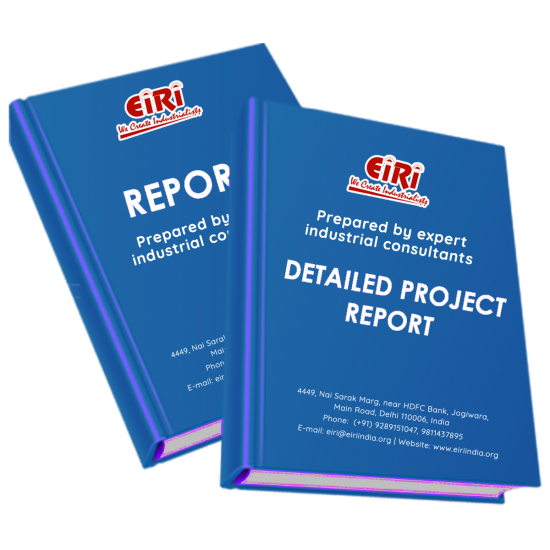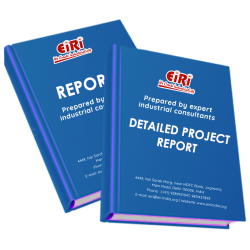Detailed Project Report on Catheters Manufacturing

- More than 45 years of experience
- Managed by expert industrial consultants
- ISO 9001-2015 Certified
- Registered under MSME, UAM No: DL01E0012000
- 24/5 Research Support
Get your quesries resolved from an industry expert. Ask your queries before report or book purchase. - Custom Research Service
Speak to the our consultant to design an exclusive study to serve your research needs. - Quality Assurance
All reports are prepared by highly qualified consultants & verified by a panel of experts. - Information Security
Your personal & confidential information is safe & secure.
CATHETERS MANUFACTURING
[EIRI/EDPR/1490] J.C. 274
INTRODUCTION
A catheter is a flexible tube made of latex, silicone, or Teflon that can be inserted into the body creating a channel for the passage of fluid or the entry of a medical device. For many years, the epidermal catheters used were plain tubes made of available industrial compounds, and design was largely based on current need. In the 1950s and early 1960s, a very common practice was to cut a suitable length of industrial polyvinyl chloride (PVC) or nylon tubing and have it sterilized with the other surgical equipment. Nowadays, there are many specialized catheter designs. For example, specific catheter designs allow catheters to be used in pulmonary, cardiac (vascular), neonatal, central nervous system, and epidural tissues. Catheters are designed to perform tissue ablation (tissue removal) and even serve as conduits for thermal, optics, and various medical devices.
The three major types of catheters are coronary, renal, and infusion. Coronary catheters are used for angiography (x-ray of blood vessels after injection of radiopaque substance), angioplasty (altering the structure of a vessel), and ultrasound procedures in the heart or in peripheral veins and arteries. The best-known renal catheters are Foley catheters, which have been commercially available since the 1930s. These catheters are equipped with an inflatable balloon at the tip and are used for urine incontinence, dying patients, and bladder drainage following surgery or an incapacitating injury or illness. The Foley catheter is relatively easy to use and used throughout the world in hospitals, nursing homes, and home-care settings.
Catheters are flexible, hollow tubes which allow blood to flow in and out of your body. They are most commonly used as a temporary access for up to three weeks. This is often done when a patient needs dialysis immediately and is waiting for a fistula or graft to mature. They are also used when a permanent access fails and a patient is too unstable to delay treatment. Several different types of catheters exist. Or we can say that a catheter is a tube put into the body, usually by a medical person, to let fluids drain out. It is often used when the person cannot urinate, as during and right after surgery.
It can also be used to drain pus or blood out of a wound. It is very bad to reuse one as it can have germs on it from the first use. It must be inserted in a very sanitary method so as not to introduce germs into the person. Many folks that have illnesses that makes it difficult to urinate must have them in all the time and sometimes get urinary tract infections if they are not changed often and in a safe manner.
Catheter refers to a central venous catheter (CVC) or a central line.
Hub refers to the end of the CVC that connects to the blood lines or cap.
Cap refers to a device that screws on to and occludes the hub.
Limb refers to the catheter portion that extends from the patient’s body to the hub.
Blood lines refer to the arterial and venous ends of the extracorporeal circuit that connect the patient’s catheter to the dialyzer.
COST ESTIMATION
Plant Capacity 2000.00 Tubes/Day
Land & Building (1 Acre) Rs.2.03 Cr
Plant & Machinery Rs..3.73 Cr
W.C. for 1 Month Rs. 1.13 Cr
Total Capital Investment Rs 8.26 Cr
Rate of Return 17%
Break Even Point 68%
CONTENTS
INTRODUCTION
CATHETER LENGTH, SIZES & TYPES
BRIEF DESCRIPTION
CATHETER MATERIALS
USES, ADVANTAGES & DISADVANTAGES
CENTRAL VENOUS CATHETER
MANUFACTURING PROCESS
PROCESS FLOW DIAGRAM
PHOTOGRAPHS
MARKET DEMAND
PRINCIPLES INFECTION CONTROL
CATHETER DESIGN AND MATERIALS
HUB OPTIMIZATION AND INTEGRATION OF HIGH-PERFORMANCE CATHETERS
MACHINERY SUPPLIERS
PLANT LAYOUT
LIST OF EQUIPMENTS (MACHINERIES)
APPENDIX – A:
01. PLANT ECONOMICS
02. LAND & BUILDING
03. PLANT AND MACHINERY
04. OTHER FIXED ASSESTS
05. FIXED CAPITAL
06. RAW MATERIAL
07. SALARY AND WAGES
08. UTILITIES AND OVERHEADS
09. TOTAL WORKING CAPITAL
10. TOTAL CAPITAL INVESTMENT
11. COST OF PRODUCTION
12. TURN OVER/ANNUM
13. BREAK EVEN POINT
14. RESOURCES FOR FINANCE
15. INSTALMENT PAYABLE IN 5 YEARS
16. DEPRECIATION CHART FOR 5 YEARS
17. PROFIT ANALYSIS FOR 5 YEARS
18. PROJECTED BALANCE SHEET FOR (5 YEARS)
How to Make Project Report?
Detailed Project Report (DPR) includes Present Market Position and Expected Future Demand, Technology, Manufacturing Process, Investment Opportunity, Plant Economics and Project Financials. comprehensive analysis from industry covering detailed reporting and evaluates the position of the industry by providing insights to the SWOT analysis of the industry.
Each report include Plant Capacity, requirement of Land & Building, Plant & Machinery, Flow Sheet Diagram, Raw Materials detail with suppliers list, Total Capital Investment along with detailed calculation on Rate of Return, Break-Even Analysis and Profitability Analysis. The report also provides a birds eye view of the global industry with details on projected market size and then progresses to evaluate the industry in detail.
We can prepare detailed project report on any industry as per your requirement.
We can also modify the project capacity and project cost as per your requirement. If you are planning to start a business, contact us today.
Detailed Project Report (DPR) gives you access to decisive data such as:
- Market growth drivers
- Factors limiting market growth
- Current market trends
- Market structure
- Key highlights
Overview of key market forces propelling and restraining market growth:
- Up-to-date analyses of market trends and technological improvements
- Pin-point analyses of market competition dynamics to offer you a competitive edge major competitors
- An array of graphics, BEP analysis of major industry segments
- Detailed analyses of industry trends
- A well-defined technological growth with an impact-analysis
- A clear understanding of the competitive landscape and key product segments
Need Customized Project Report?
- Ask for FREE project related details with our consultant/industry expert.
- Share your specific research requirements for customized project report.
- Request for due diligence and consumer centric studies.
- Still haven't found what you're looking for? Speak to our Custom Research Team
About Engineers India Research Institute:
Note: We can also prepare project report on any subject based on your requirement and country. If you need, we can modify the project capacity and project cost based on your requirement.
Our Clients

Our Approach
- Our research reports comprehensively cover Indian markets (can be modified as per your country), present investigation, standpoint and gauge for a time of five years*.
- The market conjectures are produced on the premise of optional research and are cross-accepted through associations with the business players
- We use dependable wellsprings of data and databases. What's more, data from such sources is handled by us and incorporated into the report
Why buy EIRI reports?
- Our project reports include detailed analysis that help to get industry Present Market Position and Expected Future Demand.
- Offer real analysis driving variables for the business and most recent business sector patterns in the business
- This report comprehends the present status of the business by clarifying a complete SWOT examination and investigation of the interest supply circumstance
- Report gives investigation and top to bottom money related correlation of real players/competitors
- The report gives gauges of key parameters which foresees the business execution























